Unlocking the Potential: Boosting eCommerce Average Order Value
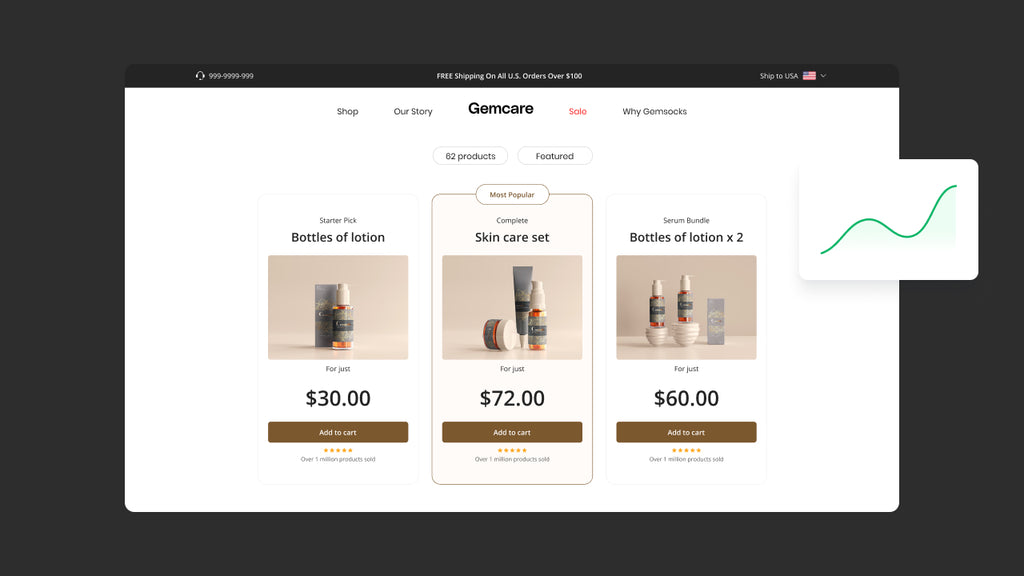
In the fast-paced world of eCommerce, driving higher Average Order Value (AOV) is a key objective for online businesses seeking growth and profitability. By increasing the average amount customers spend per transaction, eCommerce stores can maximize their revenue potential and elevate customer lifetime value.
In this article, GemPages will delve into the concept of the average order value for eCommerce sites and stores, explore the formula used to calculate AOV, and discuss effective strategies to boost AOV.
What is average order value (AOV)?
Before we dive into the strategies for increasing AOV, let's first understand what AOV is, why it is essential, and how it is calculated for your eCommerce business.
Average Order Value (AOV) is a metric that measures the average amount spent by customers in a single transaction on your eCommerce site. It is calculated by dividing the total revenue generated by the total number of orders.
The significance of AOV in online retail cannot be overstated. It provides valuable insights into customer behavior and purchasing patterns, allowing you to make informed decisions regarding pricing, promotions, and product offerings. A high AOV indicates that customers are purchasing more or higher-priced items, directly impacting your business's performance and sustainability.
Learn more: How to Upsell on Shopify: 7 Proven Tips with Examples (2023)
How to calculate Average Order Value?
Calculating AOV is a straightforward process. Simply divide the total revenue by the total number of orders. Here's the formula: AOV = Total Revenue / Total Number of Orders
Suppose a Shopify store generated a total revenue of $227,500,000 from 1,300,000 orders monthly. The AOV will be calculated as follows:
AOV = $227,500,000 / 1,300,000 = $175
Through this calculation, you can see that the higher the AOV, the more valuable your business is and all the efforts invested in the product and marketing are valuable.
Therefore, it is extremely important to monitor AOV and increase this metric. It will help your business adjust business strategies, continue to boost sales, or choose some new changes for the store.
Pro tips: Once you know AOV, you'll be crazy to find methods to increase it. But remember, designing a website with an eye-catching, user-friendly interface is one of the simplest ways. Let GemPages help you build, customize and optimize your Shopify pages.

Techniques for Increasing Average Order Value
Cross-Selling and Upselling Strategies
Cross-selling and upselling are powerful techniques that can significantly boost your AOV. Cross-selling involves recommending complementary products to customers based on their purchase history or current selection.
Upselling, on the other hand, involves encouraging customers to upgrade to a higher-priced product or add-ons that enhance their purchase.
To implement cross-selling and upselling strategies effectively, consider the following best practices:
- Analyze customer data to identify relevant cross-selling and upselling opportunities. Consider using Shopify's built-in reporting features or connect Google Sheets to your Shopify store to track and analyze your customer data.
- Display product recommendations prominently on product pages and during the checkout process.
- Use persuasive language and compelling visuals to showcase the benefits of additional products or upgrades.
Take a look at the following stores:
TenTree is a retail establishment that produces items with a primary focus on prioritizing the environment. This entails manufacturing products in ethical and secure work environments, using exclusively sustainably sourced and recycled materials.
Besides having a website whose colors convey an "eco-friendly" vibe, Tentree also applies cross-selling to its products. It's important that the products suggested here can all be combined with the products that the customer is interested in, making them easier to be “added to cart”.
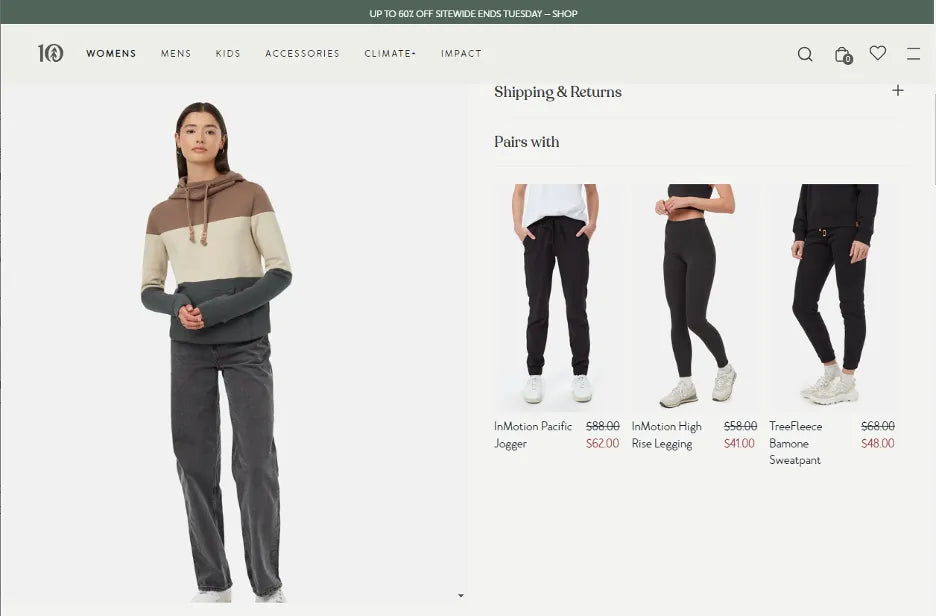
TenTree recommends some additional products that customers may find suitable, along with preferential prices as a way to encourage customers to add to cart.
When it comes to upselling, Verso Book serves as a prime example. In addition to offering essential reads, the store strategically engages in upselling by providing electronic book copies. This is an excellent option for book enthusiasts with limited time to dedicate to traditional page-turning.

To upsell effectively, suggest a way to purchase that is beneficial to consumers
Leveraging Bundle Offers
Bundling products together can encourage customers to make larger transactions, thereby increasing your AOV. By offering a bundle at a discounted price, you create perceived value for customers and incentivize them to spend more.
When creating bundle offers, keep the following tips in mind:
- Bundle complementary products that are frequently purchased together.
- Clearly show the discounted price and savings to customers.
- Highlight the benefits of purchasing the bundle, such as convenience or cost-effectiveness.
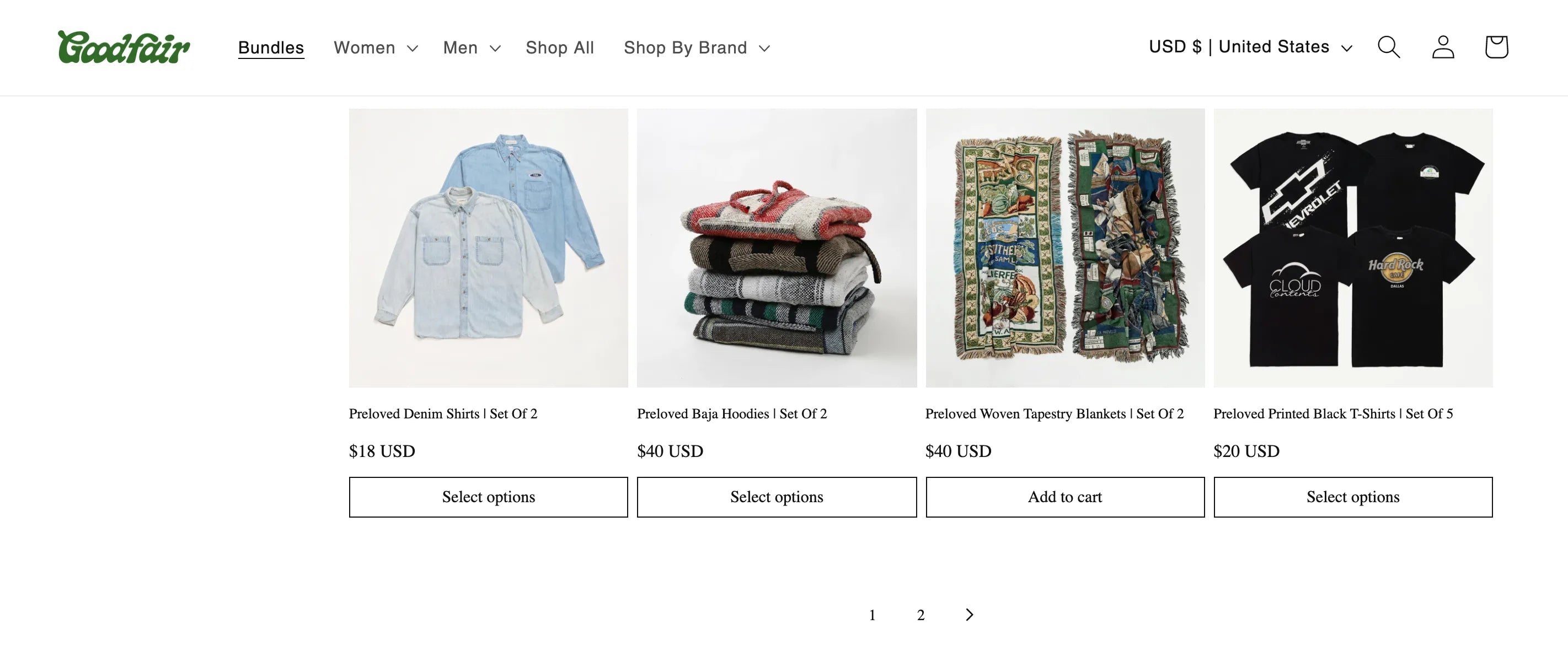
Goodfair offers customers a dedicated category of bundled sets. Instead of the need to individually select each product or navigate multiple product pages for reference, customers can conveniently visit this section and explore packages of products available for purchase together at discounted prices.
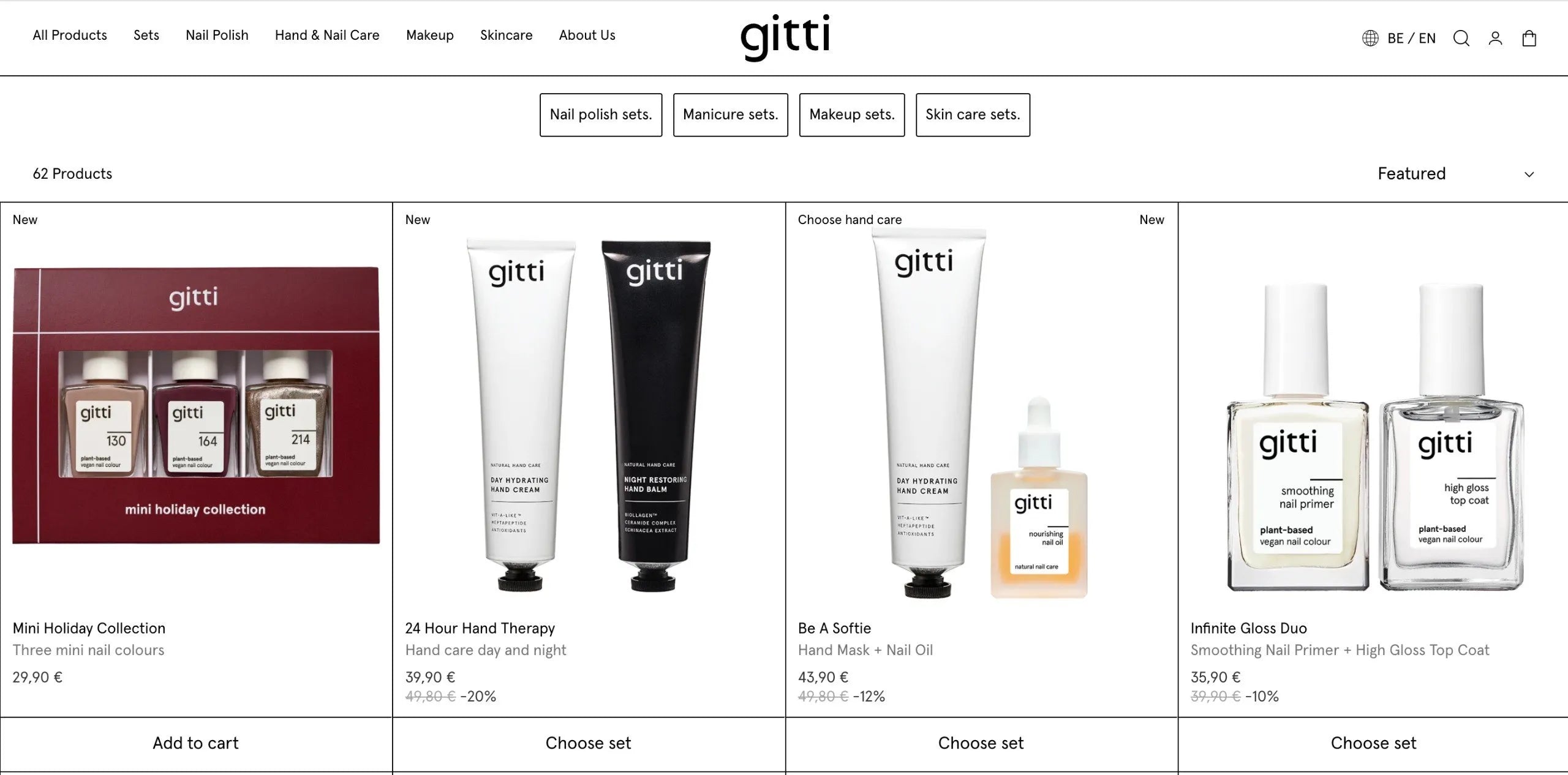
Also, Gitti offers discounted prices on skincare sets or makeup kits, which can "mix and match" together. This encourages their customers to try out new products and potentially increase their overall spending.

Setting Minimum Order Thresholds
Setting minimum order thresholds can motivate customers to spend more in order to qualify for free shipping or discounts. This strategy not only increases your AOV but also encourages customer loyalty and reduces cart abandonment.
To determine the optimal minimum order threshold, consider factors such as your profit margins, shipping costs, and customer preferences. Test different thresholds and monitor their impact on your AOV to find the sweet spot.
Below are two examples of setting minimum order. First is Craftmix. They sell cocktail mixes that are health-conscious, and conveniently sized. They also set a minimum order of 12 packs and a maximum of 36 packs with a 40% discount. With this strategy, even if customers do not choose a maximum order, they can sell no less than 12 packs per order.
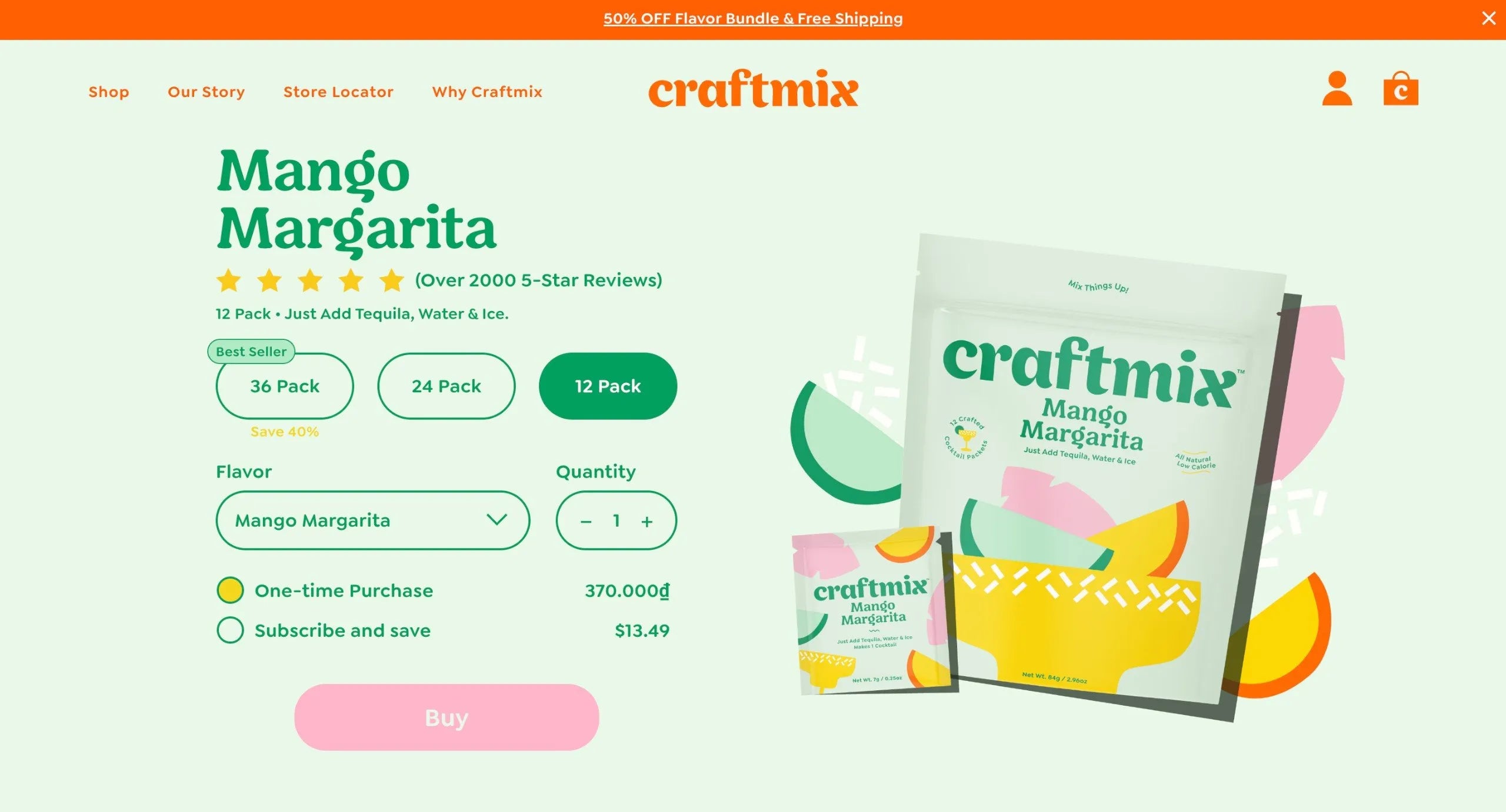
Caftmix with Mango Margarita product requires a minimum order of 12 packs.
Another example is Jolly Design, a retailer specializing in products for children aged 0 to 36+ months. Rather than imposing a minimum order quantity, Jolly provides an enticing offer: a 12% discount when customers purchase a bundle of three products. Thus, with the unchanged shipping fee that customers have to pay, they would opt for more combinations to benefit from the discount.

Pro tips: Try GemPages to create a bundle upsell section
Loyalty Programs and Rewards
Implementing loyalty programs and rewards can be an effective way to increase customer spending and AOV. By offering exclusive discounts, points-based systems, or VIP perks, you incentivize customers to make repeat purchases and spend more with each transaction.
When designing loyalty programs and rewards, consider the following:
- Offer tiered rewards based on spending levels to encourage higher AOV.
- Personalize rewards based on customer preferences and purchase history.
- Clearly communicate the benefits of joining the loyalty program to customers.
Personalization and Targeted Promotions
Leveraging customer data for personalized offers and targeted promotions can have a significant impact on your AOV. By tailoring your marketing messages and promotions to individual customers' preferences and behaviors, you create a sense of relevance and urgency that can drive higher spending.
To effectively personalize your offers and promotions, consider the following strategies:
- Collect and analyze customer data to gain insights into their preferences and behaviors.
- Use segmentation to target specific customer groups with relevant offers.
- Implement dynamic pricing or limited-time discounts to create a sense of urgency.
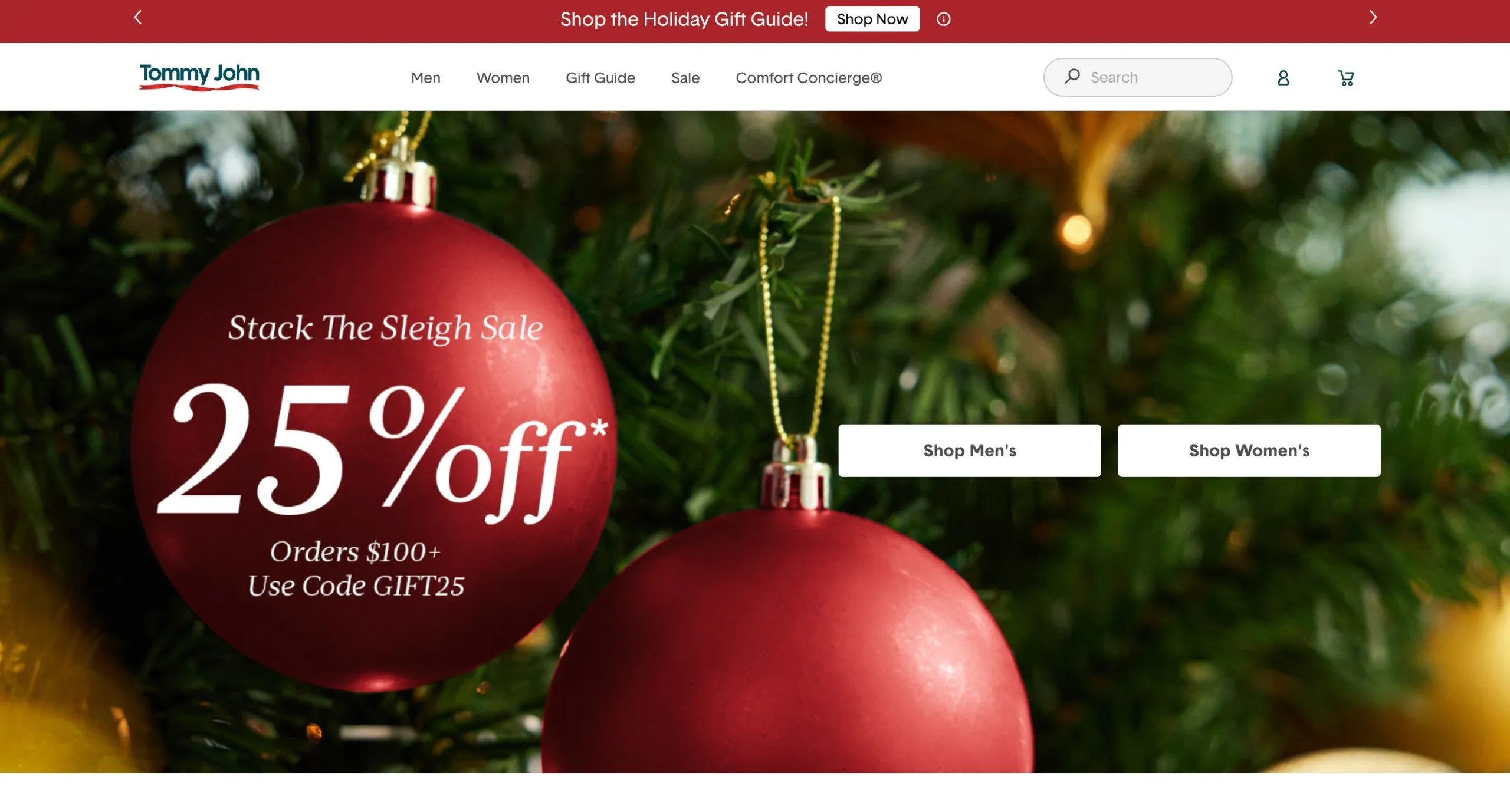
Tommy John runs a 25% promotion for purchases over $100 during the 2024 Christmas season.

Optimizing the Checkout Process
The checkout procedure is pivotal in influencing whether customers finalize their purchase or leave their carts behind. Simplifying and improving the checkout experience are key to reducing obstacles and boosting your Average Order Value (AOV).
Consider the following strategies:
- Simplify the checkout process by minimizing the number of steps required
- Offer guest checkout options for customers who don't want to create an account
- Provide clear and transparent information about shipping costs and delivery times
- Optimize your website for mobile devices to cater to mobile shoppers
Looking at Taylor Stitch and Verso Books' checkout page as examples, you can see some clear differences. Taylor Stitch not only offers a new product at the top but also adds a "Why choose us?" section about its product. These ingredients can help customers buy more but can also dilute customers' information. In terms of streamlining, look at Verso Books.
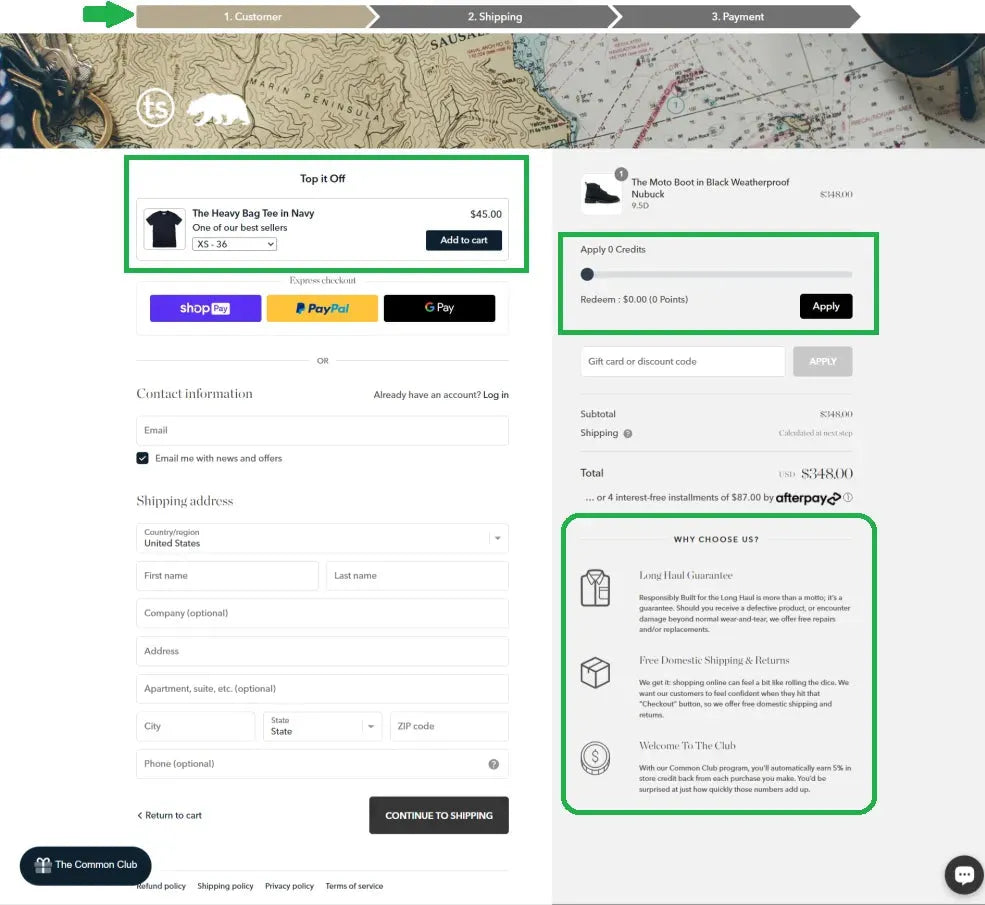
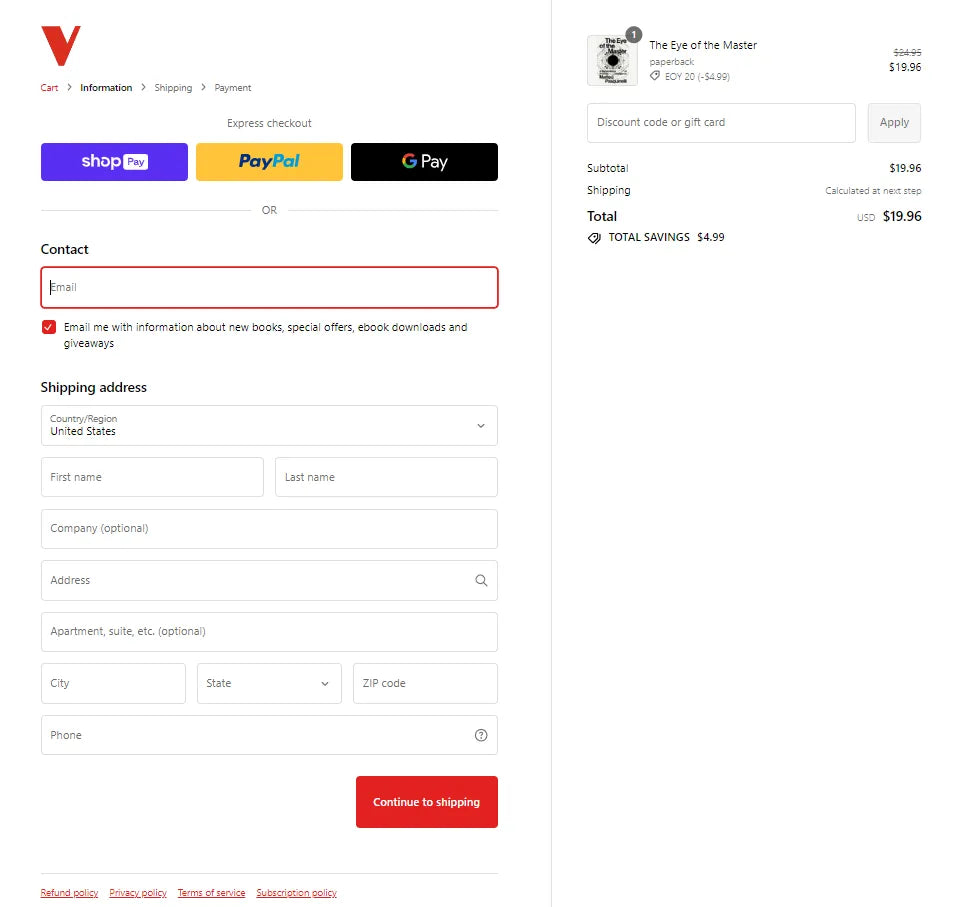
Verso’s checkout page is such clean
Learn more: How to Customize Your Shopify Checkout Page in Minutes
Pro tip: One-click ordering is a convenient feature that allows customers to complete their purchases with just a single click. By eliminating additional steps and making the buying process frictionless, you can encourage customers to add more items to their cart and increase their AOV.
But how? Adding the Dynamic Checkout Button to your store, which allows customers to skip the cart step to purchase products directly.
Highlight trending products
Make sure to feature popular items on your website to enhance their visibility. Use appealing photos on your product pages, and prominently display any available promotions. Implementing these tactics can result in an increased average order value.
Offer social proof
Social proof, such as customer reviews and feedback, significantly influences online purchasing decisions. According to Invesp, shoppers are likely to spend 31% more at e-commerce sites that have positive reviews. Strategically position these favorable reviews on your website to boost your average order value.
Monitoring and Analyzing AOV Performance
After implementing strategies to increase AOV, monitoring and analyzing your performance is essential to ensure ongoing success. By tracking key metrics and conducting continuous optimization, you can fine-tune your approach and further increase AOV.
Key Metrics for Evaluation
In addition to AOV, there are other metrics that you should track alongside to gain a comprehensive understanding of your business performance.
Some key metrics include:
- Conversion Rate: The percentage of website visitors who make a purchase.
- Average Revenue per User (ARPU): The average amount of revenue generated per customer.
- Customer Lifetime Value (CLV): The predicted net profit generated by a customer over their lifetime as a customer.
Learn more: 8 Tips to Create an Effective Mobile Product Page that Converts
Testing and Continuous Optimization
To further increase AOV, it's crucial to conduct ongoing testing and optimization. Consider these strategies for testing and continuous optimization:
- Create different versions of your website or product pages to test different pricing, offers, or layouts
- Measure the impact of each variation on AOV and other key metrics
- Make data-driven decisions based on the results of your tests
- Continuously iterate and optimize your strategies based on customer feedback and market trends
Passage of conclusion
In conclusion, increasing average order value is a fundamental aspect of eCommerce success. By implementing the strategies outlined in this article and closely monitoring performance, eCommerce businesses can unlock greater revenue potential, enhance customer satisfaction, and build a sustainable competitive advantage in the market.




 Facebook Community
Facebook Community Change Log
Change Log Help Center
Help Center









